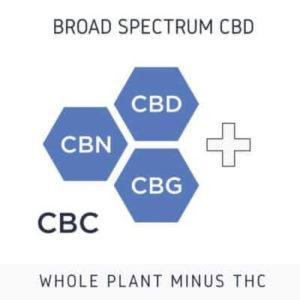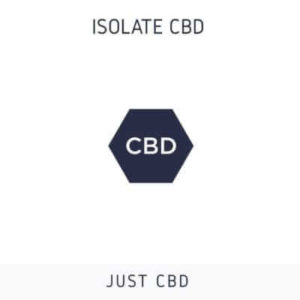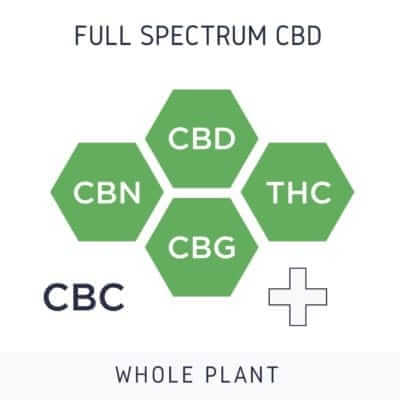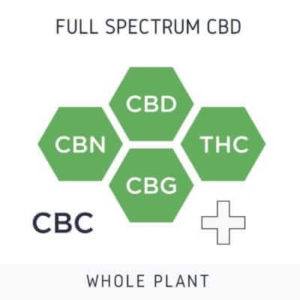CBD and Hemp 101
Full Spectrum vs. Broad Spectrum vs. Isolate
The convenient, yet tricky thing about CBD these days is that there are so many choices. You can pick whether you want to consume or apply it to your skin, choose your strength, and select your extract.
These choices can be daunting if you’re new to CBD, so we’ll help you feel informed about one of the most important parts of choosing the right CBD product for you: the extract. Extracts are always listed on the front of a CBD product and they let you know which type of CBD is being used.
The 3 Most Popular Types of CBD
Full spectrum, broad spectrum, and isolateWhen referring to CBD, an Isolate is the purest form of CBD product. A Cannibidiol Isolate is produced by removing every... More are the 3 most popular types of CBD. Each type features a specific extraction method that causes it to contain or omit certain aspects of the hemp''Hemp'', the plant of the genus Cannabis or any part of the plant, whether growing or not, with a delta–9–tetrahydr... More plant.
What is Full Spectrum CBD?
Full spectrum CBD is the most pure, unprocessed, and unfiltered hemp extract which contains all of the hemp plant’s beneficial nutrients: cannabinoids, terpenes, and essential oils.
This extract offers a holistic approach to CBD, containing the full range of hemp’s cannabinoids (among other nutrients), including THCTHC, or Tetrahydrocaannabinol, is the chemical responsible for most of the marijuana’s psychoactive effects. It behave... More. However, the THC in full spectrum CBD will always be under .3%, too small of an amount to invoke a ‘high’ feeling.
Full spectrum CBD’s wide variety of naturally occurring cannabinoids and terpenes make it capable of the entourage effect; which describes the phenomenon of each element in the plant working together synergistically to provide maximum effect

What is Broad Spectrum CBD?
Broad spectrum CBD features the full range of hemp’s natural cannabinoids, but has the THC removed. Broad spectrum is one of the newest extracts in the world of hemp products, so variations across the market in broad spectrum quality will be noticeable. For example, when removing the THC, some companies may use heat processes that destroy vital cannabinoids. For this reason, it’s important to check the third party lab results on a broad spectrum product to ensure the full range of cannabinoids for the synergistic entourage effect.
Broad spectrum CBD is the newest CBD extract on the block, bridging the gap between full spectrum and isolate CBD: it’s processed like isolate, yet offers a wide array cannabinoids like full spectrum.
Broad spectrum CBD begins as a full spectrum extract with all of hemp’s terpenes and cannabinoids intact, before it is sent through a refinement process to remove the THC compound.
Put simply, broad spectrum CBD is full spectrum CBD, with the THC removed.

What is Isolate CBD?
Some would call Isolate the purest form of CBD, which is true; but conversely, it’s the most processed form of hemp. Isolate CBD is CBD isolated from all other parts of the hemp plant including terpenes, cannabinoids, and essential oils until there it is the only cannabinoidA cannabinoid is one of a class of diverse chemical compounds that acts on cannabinoid receptors, also known as the endo... More.
CBD devotees & experts alike agree that a CBD isolateThe purest form of CBD, in which all other plant compounds and cannabinoids have been completely removed. More will provide the benefits of CBD, but it’s missing the cannabinoids that make full spectrum & broad spectrum a potentially, more powerful approach.
What’s the Difference Between Full Spectrum, Broad Spectrum, and Isolate CBD?
You can easily determine the difference between full spectrum, broad spectrum, and isolate CBD by thinking of them in this simple way:
- Full Spectrum CBD: Whole plant hemp extract with over 100+ cannabinoids
- Broad Spectrum CBD: Whole plant hemp extract with over 100+ cannabinoids, but THC removed.
- Isolate CBD: Highly-processed, often synthetic extract with the CBD cannabinoid isolated.
Benefits of Broad Spectrum CBD Oil
No risk of psychoactive effects (a ‘high’ feeling)
Broad spectrum CBD oil is the perfect CBD extract for those who want to experience all of CBD’s beneficial cannabinoids, but might have a sensitivity to THC, or are worried about consuming small amounts due to career-related drug testing.
Features the entourage effect
Broad spectrum CBD is wonderful for those who want to experience the entourage effect . This therapeutic effect can only take place when the wide variety of cannabinoids within hemp are working together to maximize the most therapeutic benefits.
Note: The entourage effect takes place in both full spectrum and broad spectrum CBD, and does not take place in isolate CBD.
Processed, yet less processed than isolate CBD
In order to make broad spectrum CBD, THC-free, it has to undergo refinement and processing. However, while broad spectrum CBD is processed, it is still less processed than isolate CBD.
Enhances physical & mental well-being
If you’re interested in CBD, it’s likely that you’re a fan of natural alternatives to support your well-being. Here’s the best Broad spectrum CBD benefits to look forward to: helps to support physical and mental well-being, supports a normal inflammatory response, helps to relieve joint pain & stiffness, helps to maintain calmness.
How is Broad Spectrum CBD Made?
Broad spectrum CBD starts out as raw hemp before being CO2 extracted in order to create a whole plant, full spectrum CBD extract. This extract then undergoes a distillation process and a proprietary cannabinoid separation to remove THC. The final product is quality tested to provide proof of zero THC content.
What is the Difference Between Full and Broad Spectrum CBD?
The main difference is that full spectrum extracts may contain trace amounts of THC (under 0.3%), while broad spectrum extracts have the THC completely removed.
Aside from this difference, broad spectrum hemp and full spectrum hemp are very similar. Both extracts feature hemp’s wide array of cannabinoids, so they’re equally capable of the entourage effect. Read more on hemp extracts here.
Is Broad Spectrum CBD Right for you?
Broad spectrum CBD is best for:
-
- Individuals who experience THC sensitivity
- Individuals who are required to participate in work-related drug testing
- Those living in states with strict laws against THC consumption
- CBD beginners who are apprehensive to consume THC
Broad-spectrumSimilarly to Full Spectrum, Broad Spectrum refers to a type of CBD product. It refers to the broad range of ingredients ... More is the right extract for you if still want to experience the full benefits of hemp and the entourage effect, but prefer to avoid any consumption of THC for either sensitivity or work-related reasons.



